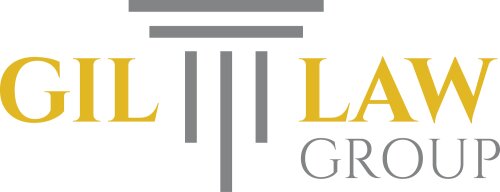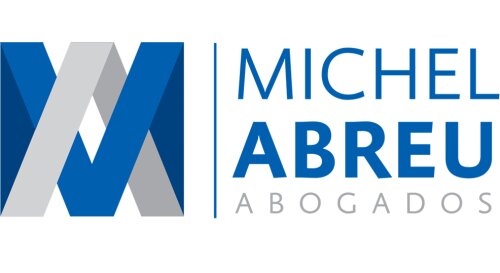Best Energy Regulatory Law Lawyers in Dominican Republic
Share your needs with us, get contacted by law firms.
Free. Takes 2 min.
Or refine your search by selecting a city:
List of the best lawyers in Dominican Republic
About Energy Regulatory Law in Dominican Republic
Energy Regulatory Law in the Dominican Republic is a set of legal rules, regulations, and policies that govern the generation, transmission, distribution, and commercialization of electricity and other forms of energy. The framework is primarily established by the General Electricity Law No. 125-01 and its amendments, alongside decrees, resolutions, and standards issued by relevant authorities. These laws aim to ensure the effective functioning, transparency, competitiveness, and sustainability of the national energy sector, while protecting the interests of consumers and promoting private investment and renewable energy usage.
Why You May Need a Lawyer
There are several circumstances in which individuals, companies, or organizations may require legal assistance within the realm of Energy Regulatory Law in the Dominican Republic, including:
- Securing permits or licenses for energy projects, such as solar, wind, or fossil-fuel facilities
- Negotiating and drafting power purchase agreements
- Dealing with regulatory compliance and audits from governmental authorities
- Resolving disputes with utility companies or grid operators
- Advising on tariff structures, incentives, and subsidies available for renewable energy projects
- Handling the environmental permitting aspect of energy developments
- Complying with obligations regarding energy efficiency and sustainability
- Navigating sanction procedures for breaches of energy regulations
- Participating in public tenders or energy auctions
- Understanding the implications of cross-border energy trade
A lawyer specializing in this area can provide clarity about your legal responsibilities, protect your interests, help you avoid costly mistakes, and successfully advocate for your rights in administrative or judicial proceedings.
Local Laws Overview
The key legal framework for energy regulation in the Dominican Republic is the General Electricity Law No. 125-01, complemented by Law No. 57-07 on Incentives for the Development of Renewable Sources and Special Regimes and other specific regulations. Key aspects include:
- Regulatory Bodies: The Superintendence of Electricity (SIE) and the National Energy Commission (CNE) are responsible for regulation, supervision, and policy-making in the sector.
- Licensing: Energy generation, transmission, and distribution require prior authorization or concessions granted by governmental entities.
- Tariff Regimes: The government regulates electricity pricing, but certain projects or agreements may benefit from special tariffs or incentive schemes, especially for renewables.
- Grid Access: Rules exist to ensure fair and transparent access to the national grid, especially for independent power producers.
- Renewable Energy Incentives: Tax exemptions, duty-free imports, and long-term rate guarantees are granted for qualifying renewable energy projects.
- Consumer Protection: Laws protect consumers from unfair practices and guarantee minimum standards of service quality and supply continuity.
- Dispute Resolution: The SIE has the authority to handle many disputes administratively, but parties may also access judicial courts under certain circumstances.
Frequently Asked Questions
What government agencies oversee energy regulation in the Dominican Republic?
The primary agencies are the Superintendence of Electricity (SIE), which regulates and supervises the electricity market, and the National Energy Commission (CNE), which is in charge of sector planning and policy-making.
Do I need a license to generate renewable energy?
Yes. Both small and large energy producers must obtain the appropriate permits and licenses from the CNE and comply with technical standards, even for renewable projects.
Are there specific incentives for solar and wind energy projects?
The law offers significant incentives for renewable energy, including exemption from certain taxes and import duties, long-term contracts, and other financial benefits for qualifying projects.
How are electricity tariffs determined?
Electricity tariffs are set by the government through the SIE, considering production, operational costs, and social policies. Some special projects may have negotiated tariffs.
What should I do if I have a dispute with my electricity supplier?
Many disputes can first be brought before the SIE for administrative resolution. If unsatisfied, you may escalate the matter to the judiciary.
Can foreign companies invest in Dominican energy projects?
Yes. The regulatory framework encourages foreign investment and provides a transparent process, especially for renewable energy developments.
What environmental permits are required for energy projects?
Most energy projects, particularly those with potential environmental impacts, require environmental impact assessments and permits from the Ministry of Environment and Natural Resources.
What is the process for connecting a private generation project to the national grid?
The process involves technical evaluations, compliance with grid codes, and entering into interconnection agreements with the grid operator, supervised by the SIE and CNE.
Are there penalties for non-compliance with energy regulations?
Yes. Non-compliance can result in administrative fines, suspension or revocation of licenses, and even criminal liability in certain cases.
Who can help me understand all the steps and documents required for an energy project?
A lawyer specializing in energy law can guide you through all regulatory requirements, help prepare necessary documents, and represent your interests in front of authorities.
Additional Resources
For more information or guidance, you may consult the following governmental bodies and organizations:
- Superintendence of Electricity (SIE): Main regulatory and supervisory agency for the electricity sector
- National Energy Commission (CNE): Responsible for sectoral policy formulation, licensing, and promotion of renewable energy
- Ministry of Environment and Natural Resources: Grants environmental permits required for energy developments
- National Energy Council: Participates in strategic planning for national energy development
- Chamber of Commerce and Production of Santo Domingo: Offers information regarding investment and project development
- Local bar associations and legal directories: For finding qualified attorneys specializing in energy law
Next Steps
If you need legal assistance with any aspect of Energy Regulatory Law in the Dominican Republic, consider the following actions:
- Clearly define your objectives and gather all relevant documents related to your energy interests or project
- Identify and select a local lawyer or law firm with proven expertise in energy regulation and project development
- Schedule a consultation to discuss your situation, learn your obligations, and receive tailored advice
- Follow your lawyer’s guidance to ensure compliance, minimize risks, and achieve your goals efficiently
- Monitor changes in local laws and regulations with your attorney’s assistance to stay updated
Taking these steps will help you confidently navigate the legal landscape and maximize the success of your energy project or matter in the Dominican Republic.
Lawzana helps you find the best lawyers and law firms in Dominican Republic through a curated and pre-screened list of qualified legal professionals. Our platform offers rankings and detailed profiles of attorneys and law firms, allowing you to compare based on practice areas, including Energy Regulatory Law, experience, and client feedback.
Each profile includes a description of the firm's areas of practice, client reviews, team members and partners, year of establishment, spoken languages, office locations, contact information, social media presence, and any published articles or resources. Most firms on our platform speak English and are experienced in both local and international legal matters.
Get a quote from top-rated law firms in Dominican Republic — quickly, securely, and without unnecessary hassle.
Disclaimer:
The information provided on this page is for general informational purposes only and does not constitute legal advice. While we strive to ensure the accuracy and relevance of the content, legal information may change over time, and interpretations of the law can vary. You should always consult with a qualified legal professional for advice specific to your situation.
We disclaim all liability for actions taken or not taken based on the content of this page. If you believe any information is incorrect or outdated, please contact us, and we will review and update it where appropriate.
Browse energy regulatory law law firms by city in Dominican Republic
Refine your search by selecting a city.















